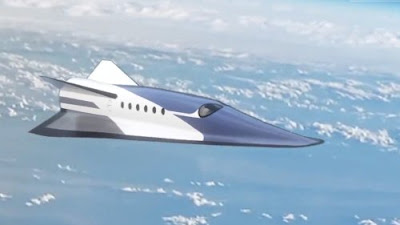Airbus Hydrogen Powered Planes - Commercial
ZEROe Planes In Service by 2035
Source: Airbus ZEROe Blended Wing Hydrogen Plane
Flying the World With Zero Emissions
Airbus has plans to put into service the world's 1st zero emissions commercial aircraft by 2035. They call it the ZEROe. The European company is analyzing three different options to use hydrogen as the primary source of power to fly commercial aircraft, carrying as many as 200 passengers to start. If successful, Airbus would be leading the biggest transition in commercial aviation history. Its technology would move airplanes from highly polluting jet fuel to zero emissions hydrogen fuel. Airbus believes that hydrogen has tremendous potential to significantly reduce aviation's climate change impact. Global airline flights are among the top greenhouse gas polluters in the world.
Tough Dynamics for the Airline Industry
The global aviation industry has committed to cutting their 2005 level of emissions in half by 2050. To do that, the industry has to move from crude oil based jet fuel to sustainable fuel sources like hydrogen that are zero to low emissions fuels. The industry has been financially hard hit by the global COVID pandemic and sustainable green fuels are a lot more expensive than jet fuel. So going with greener energy sources is a tough financial dynamic for airline operators. But, Airbus says hydrogen could cut aircraft carbon emissions by 50%. New aircraft designs that are powered by hydrogen are on the table.
Airbus Strategy and Options
Airbus is taking a look at three aircraft design options that are powered by hydrogen:
- Turbofan - Can carry 120 to 200 passengers with a range of 2,000 nautical miles, powered by a modified engine running on hydrogen.
- Turboprop - Can carry 100 passengers and travel 1,000 nautical miles on hydrogen power
- Blended Wing - Can carry 120 to 200 passengers and have a range of 2,000 nautical miles on hydrogen power.




Comments
Post a Comment